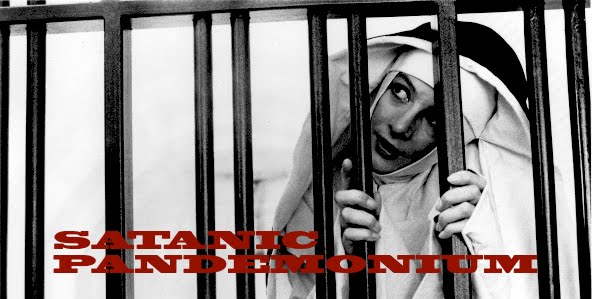Rainer Werner Fassbinder, 1972
Starring: Gottfried John, Hanna Schygulla, Luise Ullrich
This five-part television show focuses on a group of interconnected friends and family surrounding a worker named Jochen. He and the others juggle their working lives — including the struggle between striving for success and financial bonuses and fairness to the other works — and their home lives, which include varied kinds of relationships. The familiar foreman dies and instead of hiring from within, a new, outside manager is brought in. Jochen and his girlfriend plan to marry and invite another couple to move in; an elderly woman moves out of the family home to live with a boyfriend; another couple struggles and may be getting divorced.
On one hand, this is perhaps Fassbinder’s most accessible work — it’s a straightforward, realist tale of workers and their every day lives. On the other hand, it’s perhaps his most difficult work to see. It has never received English subtitles and has never been released on DVD in any country. Fortunately, the Rainer Werner Fassbinder Foundation is intending to restore the series and release it for the first time on DVD at some point this year. I was able to hunt down parts of each episode, which means I saw about an hour or so of what is actually a 470-minute series, so this is not a complete review by any means, but I certainly got a solid sense of the show. The episodes, in order, are: “Jochen and Marion” (released October of 1972, 101 minutes), “Grandma and Gregor” (released December of 1972, 99 minutes), “Franz and Ernst” (released January of 1973, 91 minutes), “Monika and Harald” (released February of 1973, 88 minutes), and “Irmgard and Rolf” (released March of 1973, 88 minutes).
Eight Hours are Not a Day premiered on October 29, 1972 in West Germany and apparently caused quite a sensation within German homes. Though it was only five out of an intended eight episodes, and Fassbinder apparently felt like he wasn’t allowed to do with it what he really wanted to do, he effectively made a middle/working-class sitcom that challenged a number of notions about post-war German life. Shown between 1972 and 1973 on German television, this series was produced by created for Westdeutscher Rundfunk. It depicted a range of emotional and working experiences, depicting neither heroes nor villains, but just regular people. There were a number of unusually frank characters that would typically never be found on a ‘70s sitcom, including sexually active grandparents.
Fassbinder’s last romantic partner, one of his long-time editors, and head of his estate Juliane Lorenz has loosely compared this to what HBO has done over the last ten years with shows like The Wire. Though Eight Hours is far from an urban crime drama, I would have to agree with her. This is a frank look at working class issues such as how to balance work and life, how to resolve personal goals within the workplace, and how to navigate romantic relationships and family life. Fassbinder presents is a refreshing and thoughtful if mainstream blend of relationship styles, including an engaged couple, a married couple about to divorce, and an older woman with a boyfriend, as well as his typical social issues like the effects of prejudice.
When Eight Hours are Not a Day is finally released this year, it will be well worth checking out for fans of ‘70s sitcoms and Fassbinder alike. It includes some strong performances from his regular cast of actors, as well as new faces, such as Gottfried John, Hanna Schygulla, Luise Ullrich, Hans Hirschmüller, Renate Roland, Karl Scheydt, Irm Hermann, and the always delightful Kurt Raab. Eight Hours is most similar to Fassbinder’s realist films like Merchant of the Four Seasons, Fear of Fear, or even Pioneers in Ingolstadt — it lacks the stripped down quality of his first films as well as the ornate stylization of his later work, and remains a surprisingly fresh, if digestible work.


No comments:
Post a Comment